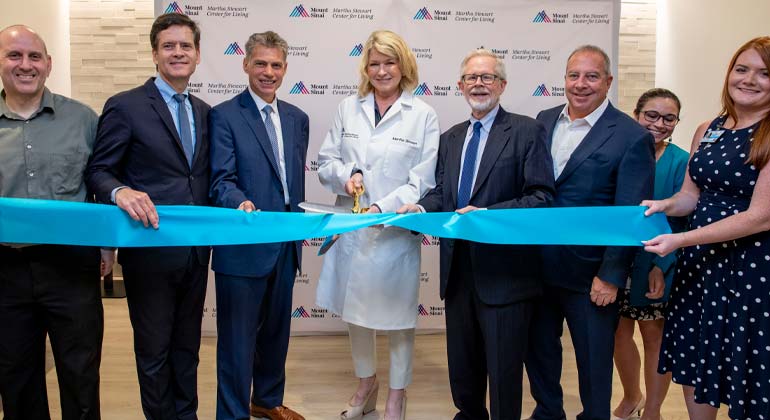Palliative Care Makes Only Limited Gains in Africa
Icahn School of Medicine at Mount Sinai student leads first comprehensive analysis of African palliative care literature over past 12 years
Palliative care has increased in Africa over the past 12 years but only in a small subset of countries, according to a review published today in Lancet Oncology. This research was led by John Y. Rhee, a fourth-year medical student at the Icahn School of Medicine at Mount Sinai (ISMMS).
Palliative care—defined by the World Health Organization (WHO) as an approach that improves the quality of life of patients and their families facing life-threatening illness through the prevention and relief of suffering with physical, psychosocial and spiritual care—is developing rapidly around the world, but progress varies greatly by region. Only limited data exists on palliative care development in Africa.
To better understand palliative care progress across the African continent, Mr. Rhee and his team conducted a country-specific scoping review of peer-reviewed literature on palliative care development in each African country over the last 12 years, using the WHO definition of palliative care but taking into account the resource constraints of Africa. A scoping review is a preliminary assessment of the potential size and scope of available research literature that aims to identify the nature and extent of research evidence about a particular issue.
“We undertook this project with the hope of providing evidence for palliative care advocates on the ground in Africa,” said Mr. Rhee. “Without benchmarks, it is difficult to measure progress and set goals for the future.”
According to this literature review, palliative care has grown in Africa over the past twelve years but mainly in a small subset of countries (26 countries, 48 percent of African countries). The majority of palliative care services were concentrated in Kenya, South Africa, and Uganda, and 14 (26 percent of African countries) countries experienced a growth in palliative care services. The number of countries with policies and/or guidelines related to palliative care has grown; however, postgraduate educational opportunities in the field remain sparse (only available in Kenya, South Africa, Uganda, and Tanzania).
Opioid consumption and access has remained very low across the continent, which is a barrier to pain management, one of the most important components of palliative care. Information on palliative care is also unevenly distributed, with growth in a subset of African countries but minimal to no identified development in the majority of countries.
“We know that underserved populations are more likely to be diagnosed with late-stage illness and have worse health outcomes,” said Prabhjot Singh, MD, PhD, Director, The Arnhold Institute for Global Health, and Chair, Department of Health System Design and Global Health, Icahn School of Medicine at Mount Sinai. “Lack of access to quality palliative care leads to increased suffering for vulnerable populations. Globally, we face common challenges in delivering low-cost, high-quality health care at scale. John Rhee’s research identifying gaps in access to palliative care in Africa is essential to addressing structural inequities in care delivery, and building healthier communities.”
The authors suggest that African countries focus on decreasing barriers to opioids and increasing postgraduate educational opportunities, which may lead to increasing the number of trained professionals who may drive service provision and policies. Future research on professional activity and capacity building specific to the African context is also needed.
Using the findings from this scoping review, Mr. Rhee co-created the APCA Atlas of Palliative Care in Africa (APCA Atlas) which was released at the 15th World Congress of the European Association for Palliative Care in Madrid in May 2017. This was the first comprehensive publication on African palliative care to be published in more than 10 years.
This research was funded by TheArnhold Institute for Global Health at the Icahn School of Medicine at Mount Sinai, the Institute for Culture and Society at the University of Navarra, the International Association for Hospice and Palliative Care, and the African Palliative Care Association.
About the Mount Sinai Health System
Mount Sinai Health System is one of the largest academic medical systems in the New York metro area, with more than 43,000 employees working across eight hospitals, over 400 outpatient practices, nearly 300 labs, a school of nursing, and a leading school of medicine and graduate education. Mount Sinai advances health for all people, everywhere, by taking on the most complex health care challenges of our time — discovering and applying new scientific learning and knowledge; developing safer, more effective treatments; educating the next generation of medical leaders and innovators; and supporting local communities by delivering high-quality care to all who need it.
Through the integration of its hospitals, labs, and schools, Mount Sinai offers comprehensive health care solutions from birth through geriatrics, leveraging innovative approaches such as artificial intelligence and informatics while keeping patients’ medical and emotional needs at the center of all treatment. The Health System includes approximately 7,300 primary and specialty care physicians; 13 joint-venture outpatient surgery centers throughout the five boroughs of New York City, Westchester, Long Island, and Florida; and more than 30 affiliated community health centers. We are consistently ranked by U.S. News & World Report's Best Hospitals, receiving high "Honor Roll" status, and are highly ranked: No. 1 in Geriatrics and top 20 in Cardiology/Heart Surgery, Diabetes/Endocrinology, Gastroenterology/GI Surgery, Neurology/Neurosurgery, Orthopedics, Pulmonology/Lung Surgery, Rehabilitation, and Urology. New York Eye and Ear Infirmary of Mount Sinai is ranked No. 12 in Ophthalmology. U.S. News & World Report’s “Best Children’s Hospitals” ranks Mount Sinai Kravis Children's Hospital among the country’s best in several pediatric specialties.
For more information, visit https://www.mountsinai.org or find Mount Sinai on Facebook, Twitter and YouTube.

Mount Sinai Geriatricians to Develop Model Health Care Program for Older Adults With HIV
Nov 17, 2022 View All Press Releases
